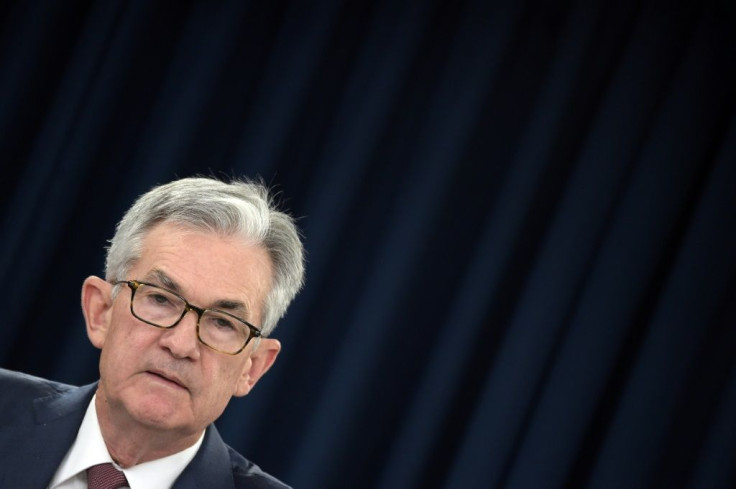Fed's Powell Urges Congress To Focus On Debt, Deficit

Federal Reserve chief Jerome Powell urged Congress on Wednesday to take action on the rising US debt and deficit to ensure the continued growth of the American economy.
Called before the Joint Economic Committee to discuss the economic outlook, the central bank chief stressed that it was not his role to give policy advice, before he gave diplomatically-worded policy advice.
"The debt is growing faster than the economy. It's as simple as that," Powell said in response to a question.
"We're not in the business of advising you when or how to do it but it is inevitable that over time, we have to do it" or the tax dollars of future generations will be used to pay interest rather than for education, security, health.
The US budget deficit -- which Powell called "unsustainable" -- soared to just under $1 trillion in the 2019 fiscal year, despite a growing economy and low interest rates.
Meanwhile, government borrowing is more than $23 trillion and growing, and interest payments jumped 10 percent to $572.8 billion in the year ended September 30.
Beyond the long-term health of the American economy, the central banker warned that the debt and deficit could limit the willingness of lawmakers to act should the United States face another downturn.
And Powell warned that the Fed's tools to respond to the next recession are limited: In past recessions, the Fed has cut the key lending rate by five full percentage points on average -- but that is no longer possible since the rate has been cut back to a range of 1.5 to 1.75 percent.
Fiscal policy is "a key part of the counter cyclical reaction" when the economy is in trouble, he said. But the rising debt and deficit "could restrain fiscal policymakers' willingness or ability to support economic activity during a downturn."
Despite those warnings, in the first of back-to-back days of testimony before Congress, Powell said the US economy is likely to continue to grow though it faces continued risks from the global slowdown and trade disputes.
He repeated the message he delivered after the third rate cut in late September, saying policymakers will hold off on any further moves while they assess the impact of the rate cuts on the economy, as well as any new developments.
That message will not be welcomed by President Donald Trump, who has accused the Fed chief of incompetence and of undermining his efforts to supercharge the US economy.
Trump on Tuesday again accused the Fed of raising rates too quickly and cutting too slowly, even indicating he would like to see the kind of negative interest rates used in Europe and Japan, where economic growth has been persistently sluggish.
Powell consistently declines to respond to Trump's criticisms but in a veiled aside to start his prepared testimony he said the Fed has been granted independence to conduct monetary policy "based on facts and objective analysis."
The Fed raised the key borrowing rate four times in 2018, as the economy seemed to be gaining speed, but reversed course this year as Trump's trade conflicts especially with China dragged on and began to impact the real economy.
Powell said the rate cuts were designed to support continued growth "and to provide some insurance against ongoing risks."
After providing that stimulus, Powell said, "my colleagues and I see a sustained expansion of economic activity, a strong labor market, and inflation near our symmetric two percent objective as most likely."
However, Powell warned that "sluggish growth abroad and trade developments have weighed on the economy and pose ongoing risks."
US GDP growth slowed to 1.9 percent in the third quarter from 2.5 percent in the previous three months and while that was partly due to a 40 day strike at General Motors, trade conflicts also have weakened business investment and "weighed on exports and manufacturing this year," he said.
If anything changes or new developments impact the economic outlook, "we would respond accordingly."
© Copyright AFP {{Year}}. All rights reserved.





















